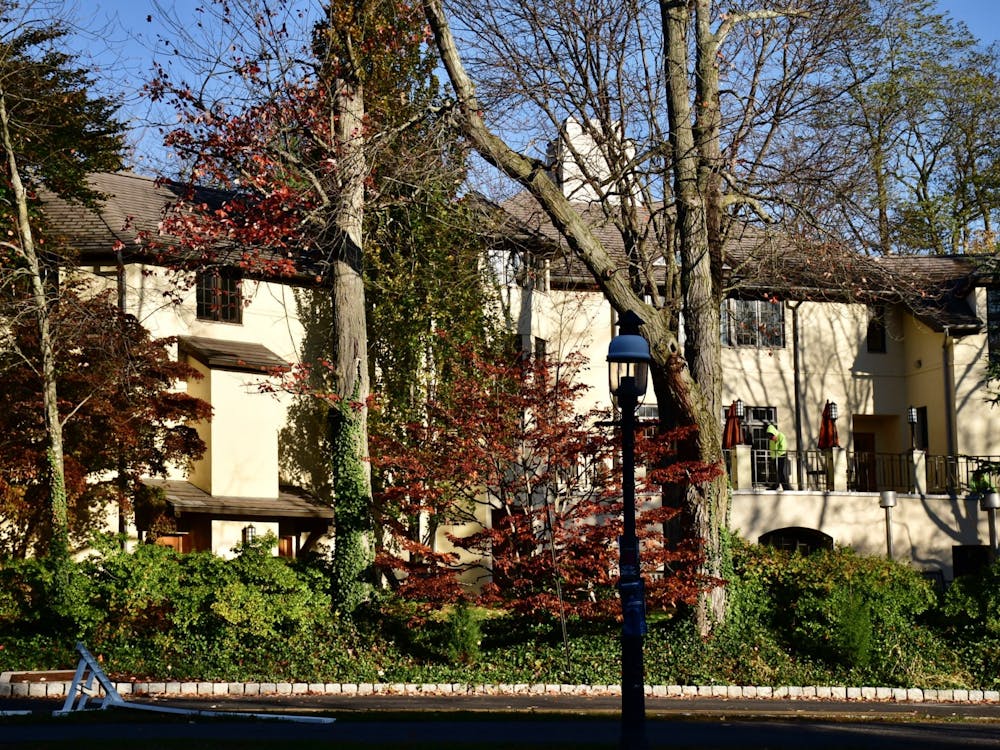Newspapers fulfill a unique niche in whatever community they serve, whether that is the campus, city, nation or the world at large, as they are one of the few sources providing concise and clear factual information in the time honored objective of traditional journalists. This exclusive role is especially prevalent on college campuses, where the only other source of information about campus issues is the University itself and thus could be biased.
In addition to providing campus news, these university newspapers grant those students involved with the paper an incredible opportunity to serve the student body and hone professional skills. The Opinion section of The Daily Princetonian provides a forum for columnists and the general University community to enact changes by publicizing pertinent issues, especially when traditional media aimed at creating change fail, which is why I choose to join the section. (And given that applications are now out for second semester columnists, it is something you too can do if you also want a forum to generate change.)
However, the student newspaper system here isn’t flawless. The new editor-in-chief recently published the ‘Prince’code of ethics, in alignment with the policy of most newspapers, to render the newspaper more accountable to the campus population. Laudably, the code of ethics emphasizes that staffers are professionals and should be held “to the highest levels of ethical conduct and integrity.” The goal of maintaining a professional atmosphere is admirable, as it serves both the writers looking for a real-world experience and the readers who want reliable information. Nevertheless, the reality that we are students first, not journalists, makes me question some policies within the code of ethics, policies that if modified slightly wouldn’t diminish the reading experience for our audience, but would enhance the experience for the many student journalists who work for the ‘Prince.’
Specifically, I question the policy that writers for the Opinion section and those students involved in the business of publishing the newspaper cannot be part of any other section. The rationale is that Opinion columnists have publicly displayed biases in their columns whereas every other section — from News to Copy to Design — is publicly unbiased. Thus, even if an Opinion writer can be unbiased in another role, the mere “appearance” of bias prohibits a crossover role to another section.
The problem is, it is irrational to assume that the opinion columnist is any more biased than the average copy editor, designer or editor who also has some control over page layout. Everyone has a perspective that can bias how they copy edit an article or how they choose to lay out the articles. It is naïve to assume otherwise. Thus, the notion that the bias doesn’t matter — while the mere the appearance of a bias is important — is ridiculous. The primary rationale behind preventing this section crossover might be that this appearance of bias would ruin the newspaper’s reputation and credibility to its readers. But if this is actually a nonissue to the reasonable reader, the separation doesn’t seem legitimate. Staffers when writing, editing or laying out the news should all be held to a high standard of objectivity. An Opinion columnist is not any less likely than any other newspaper staffer to be objective in dealing with news articles.
It might be true that in some cases the likelihood of introducing bias into a role is so large that it merits this separation. For example, it might be reasonable to assume that news and opinion writers shouldn’t cross over. But surely Copy and Design face fewer situations in which bias would intervene. It is naïve to assume that a sports writer will not copy edit in a slightly biased way like an opinion writer might be inclined to do, as they are both students with varied perspectives. Furthermore, these restrictions also apply to guest columnists who only wrote one opinion column, even without their realization.
No matter what section one chooses, being a student journalist comes with its sacrifices, as a newspaper is nothing without its reputation for objectivity. I myself was accepted to both News and Opinion this past fall and decided to join Opinion largely because I felt the restrictions on news staffers were so intrusive that they would hinder my ability to have the well-rounded student experience. According to the code of ethics, news writers and even sports reporters cannot even sign a USG candidate’s petition to run — merely a statement that you support the candidate having the opportunity to run — much less publicly support a USG candidate. Though I understand that some sacrifices are necessary as a journalist, I didn’t feel that these were fair, as they take the goal of avoiding the appearance of bias too far.
The ‘Prince’ should strive to attain the highest ethical standards in order to maintain its reputation and fulfill its duty to the community. The publication of the code of ethics is proof that this year’s editorial board is off to a great start. Yet we must also recognize that the ‘Prince’ is a student newspaper and still has a responsibility to provide a well-rounded apprenticeship experience to its student journalists.
Marni Morse is a freshman from Washington, D.C. She can be reached at mlmorse@princeton.edu.








